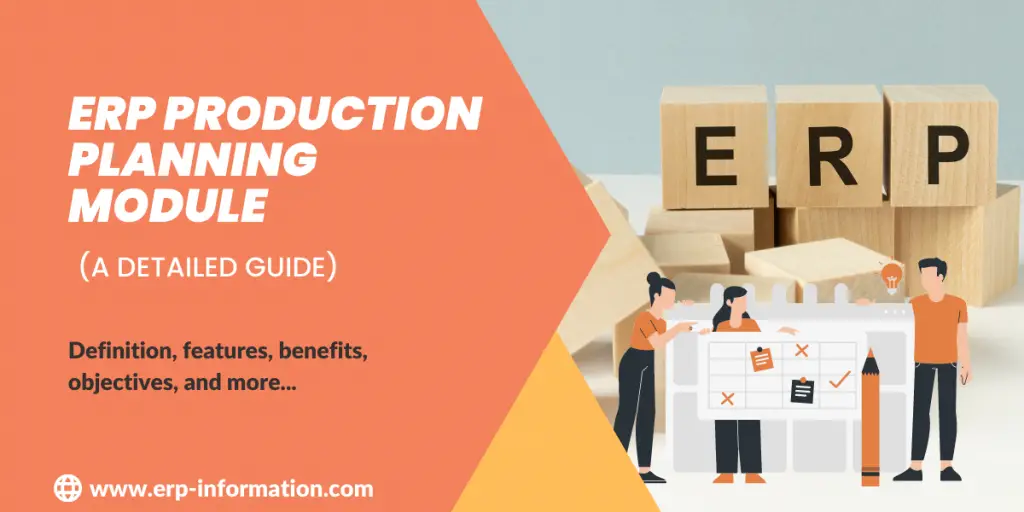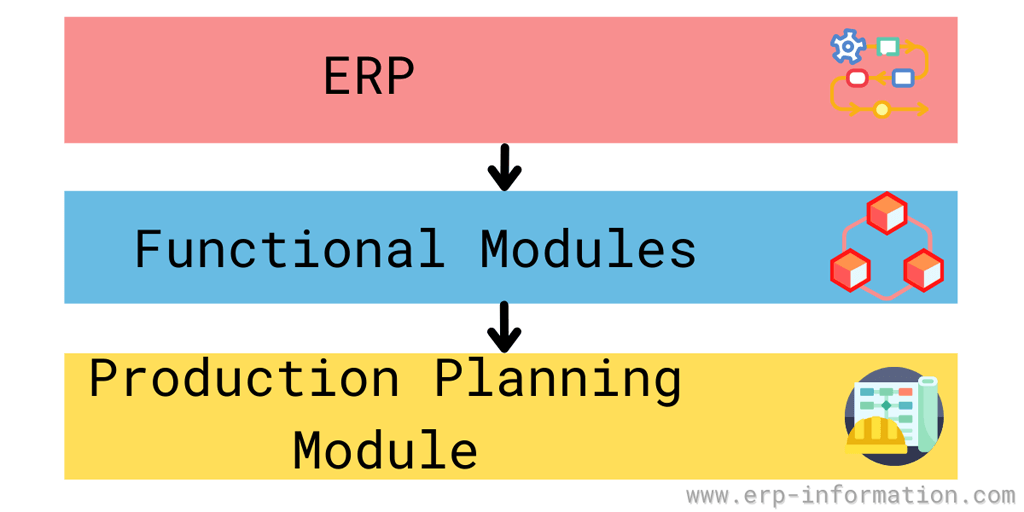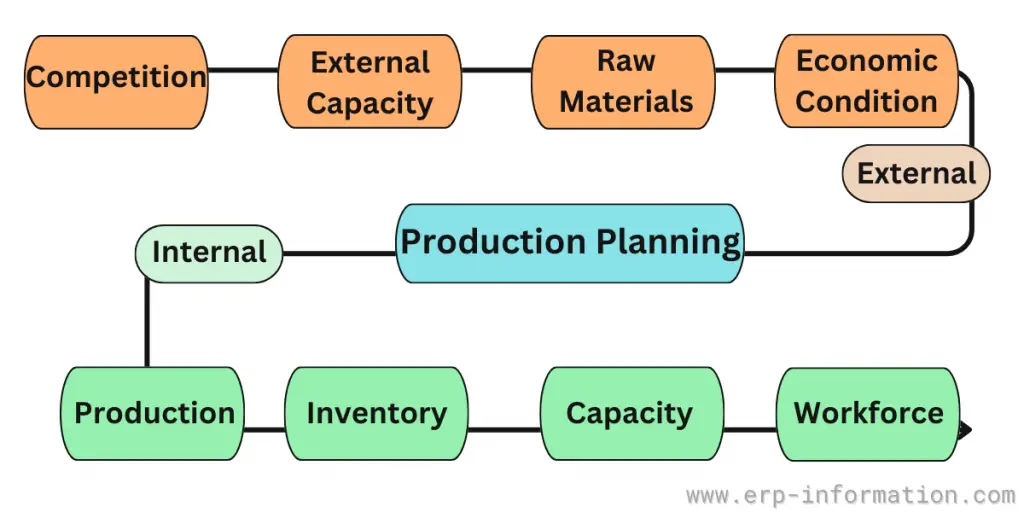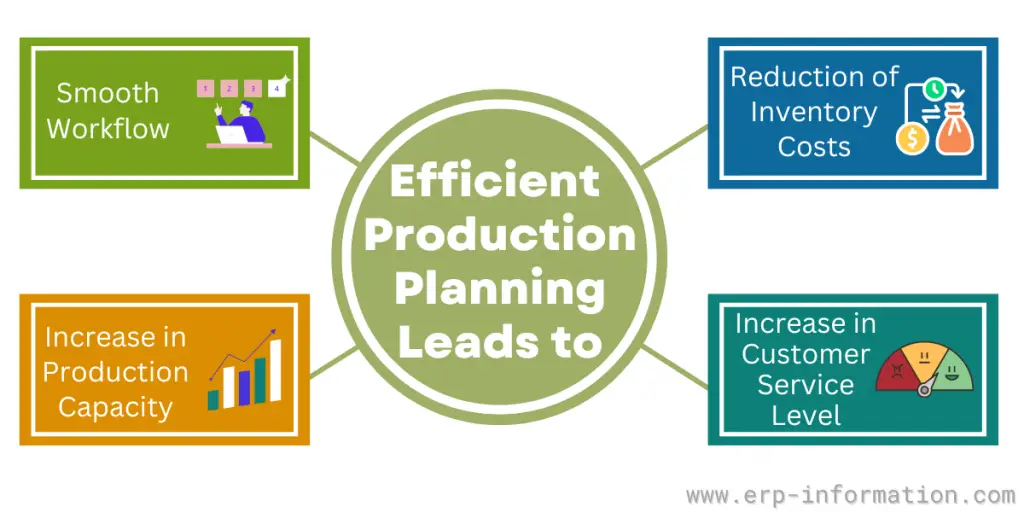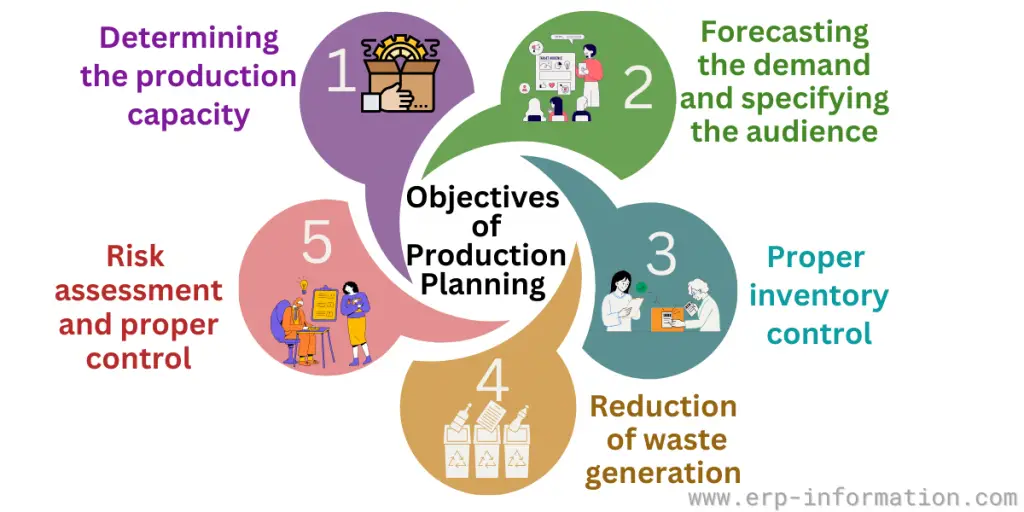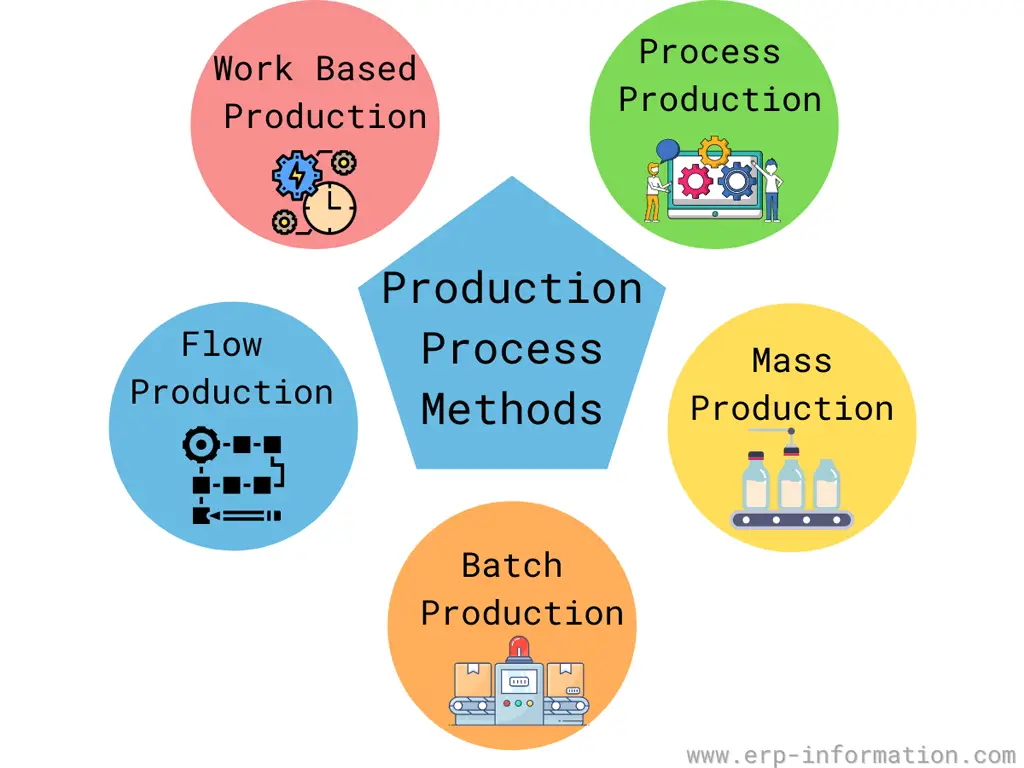Manufacturing companies need to plan and control their production process to meet customer demand and achieve their objectives.
Production planning is a critical function for any manufacturing company, but it can be challenging to do effectively without the right tools.
ERP Production Planning Module is a critical component of ERP software for manufacturers. It is used to plan and control the manufacturing process, from product design through production and delivery to customers.
This blog post will discuss the features, benefits, and examples of the ERP Production Planning Module. It will also look at the objectives of production planning and how it helps manufacturers meet their goals.
Calculate ERP implementation cost using our Online ERP Implementation Cost Calculator
What is ERP Production Planning Module?
ERP Production Planning Module is a component of ERP software that helps manufacturers plan and control the manufacturing process. It allows companies to design products, track production, and deliver products to customers.
ERP Production Planning Module also helps manufacturers meet their objectives by providing a framework for effective planning.
The evolution of manufacturing resource planning (MRP II) into ERP happened. In this process, vendors have developed more robust software for production planning.
Consulting firms have accumulated a vast knowledge of implementing ERP production planning modules.
The ERP production module will do a small part of the work. It starts with product creation. Then, related to it, there will be a component master and stage master in the database.
ERP production module is designed to track day-to-day production progress. For example, on completion of any work order, information will be sent for delivery. In addition, reports on the delivery schedule will be available in this module.
Production Planning helps an organization plan production with the best use of all available resources. Material requirements planning is done based on the advice generated by the sales department.
The feasibility of production is evaluated using details like,
- Raw material availability and procurement time.
- Machine availability and capacity.
A production schedule is generated for all machines. Scheduling is done in an optimized fashion based on the priorities of production.
Features of the Production Module in ERP
ERP Production Planning Module has several features that make it a valuable tool for manufacturers. Some of these features include:
- Process definition with inputs, outputs, by-products, and overheads.
- Definition of Bill of Materials (BOM) for all products up to any number of levels.
- Planning based on customer-wise production advice and sales forecast.
- Material requirement planning: MRP based on machine capacity and availability, machine efficiency, raw material availability, and lead time. It gives a workable quantity for production.
- Production plan for machines with the best use of all available resources. Resources like raw materials and machines.
- Option to revoke production plan to change input parameters, production priority, or quantity. This is done using fresh production advice.
- Generation of the production schedule for machines detailing inputs and outputs.
- Analysis of machine efficiency and utilization.
- Automatic generation of MRS and purchase requisitions on finalization of the plan.
- Generation of process requisition for processes that have to be subcontracted.
- Reserving quantity for production.
- Automatic generation of job orders for production.
- Option to make daily plans for production.
- Generating reports related to production.
- Overall production management in ERP.
Benefits of Production Planning Module in ERP
The ERP Production Planning Module is a critical component of ERP software. It allows for the planning and execution of production processes in a manufacturing environment. In addition, the module provides benefits such as:
- Maintaining a smooth workflow improves the work environment due to reduced labor and production costs.
- An adequately designed production plan will reduce inventory costs and the risks of misinterpreting and running a huge loss.
- Increased customer service level due to on-time and high-quality deliveries.
- Increase production capacity due to synchronized production line functioning, thus increasing sales rate.
Hence, an efficient and intelligent production plan is the groundwork for success. Using the production planning module in ERP makes this process better.
Example Use Cases of Production Planning in ERP
ERP Production Planning Module can be extremely useful in ensuring your production process is as smooth and efficient as possible. In some cases, the ERP Production Planning Module has even been able to overhaul production processes for the better completely.
Following are the best-case outcomes observed across industries.
- Manufacturing companies were able to reduce lead times by 50%.
- Food producers increased their output by 20% while maintaining a high level of quality control.
- Beverage producers were able to reduce inventory levels by 30%
Objectives of Production Planning ERP
Let’s get into the detailed description of the objectives of production planning that need to be kept in mind while designing the production plan for an organization,
Determining the production capacity
The first and foremost thing to be planned out is the total capacity your firm is targeting to produce. That is a crucial step for all production planning strategies.
Many other things are to be considered, like the availability of raw materials, proper infrastructure to handle every procedure, excellent and efficient labor, the time required to process one batch of finished goods without any setbacks, etc.
Forecasting the demand and specifying the audience
This objective is significant only when you have a targeted audience for whom you are producing. Can you assess the market demands of the product you are generating and how long the demand will keep you running?
It takes an excellent planner to assess all this properly, but once done, it’s a failsafe against production hazards.
Proper inventory control
Any organization trying to make it big and targeting a smooth, uninterrupted workflow must stock up its inventory on time.
Computer-generated programs like MPS and MRP are used in high-end firms for production planning and scheduling.
That helps to manage and synchronize the inflow of materials correctly and on time to prevent the work process.
Reduction of waste generation
Any well-managed firm would generate some waste. So the target must be to keep a tab on the amounts of waste generated and reduce them by any parallel process.
The waste generated can be used up as raw material in some other process through the production line, which improves the firm’s stability and makes it an economic project.
Risk assessment and proper control
A production plan must have a risk assessment done. This procedure highlights all the glitches in the production plan, what could go wrong, and how.
It studies historical projects of a similar dimension and tries to forecast the risk areas that must be tackled carefully.
That requires setting up a control system, which highlights the production line without the risky spots and adequately assesses the results to grasp the magnitude of the risk.
Types of Production Planning Process in ERP
1. Project-based or work-based production planning
This planning method mainly concentrates on producing a single product, usually handled by a single worker, sometimes run by a group of workers.
An example of this type of production is any customized product like earrings or interiors for a flat.
It allows you to manufacture the product as per your customer’s needs. You can make it without interrupting the usual production process.
2. Flow production method
In this method, products continuously flow through the production line—electronic items such as mobile handsets, televisions, and home appliances.
This method helps the manufacturer to reduce the lead time and costs.
3. Mass production method
This method is the same as the flow production method. Therefore, this method is suitable for manufacturing many products in less time.
Usually, we will use automated production processes in this method. That is because it helps the manufacturer by reducing the change over time.
4. Process production method
This technique is the same as the flow and mass production method. But the difference is that products manufactured by this method will not be countable.
This method helps produce products like liquids, chemicals, and gases.
5. Batch production method
In this production method, product manufacturing takes place in batches. Products like cookies and chocolates will be produced in this method.
Types of Production Planning ERP Systems
You may find several types of production planning that concentrate on various aspects of the production process.
- Master Production Schedule (MPS): It helps to schedule the particular material or product to be produced in a given time. They are created by the software and customized by the user.
- Material Requirement Planning (MRP): This system is helpful for production planning and scheduling. It helps to know about the availability of raw materials. This system can be handled fully manually or automated by software.
- Capacity Planning: It helps to find out the capacity of the organization to manufacture the products as per the demand.
Key Performance Indicators for ERP Production Planning
Key Performance Indicators (KPIs) help to review production planning. Below are a few KPIs for ERP production planning.
- Production Expenses: Keep one eye on production expenses that include raw material costs, rent, employee’s salary, equipment, electricity, etc.
- The usability rate of capacity is calculated by taking the percentage of actual production process output against possible production process output. Therefore, always plan the production to use the maximum capacity of machines and manpower.
- Actual time against planned time: Monitor and review the planned time and actual time taken for the production plan. It helps to set the accurate planned hours next time.
- Productivity of employees: It is one of the critical KPIs. Employees must be punctual and work at least seven out of eight hours.
- Takt time: It is the time needed to manufacture a single unit. Generally, it is crucial in lean manufacturing.
Possible Mistakes While Using Production Planning in ERP
Generally, we make some common mistakes while doing production planning. By knowing them, we can avoid or prevent them.
- Not considering unexpected issues: Normally, we do production planning without considering the changes and issues. However, we need to consider these two factors to be ready to face problems when they arise.
- Considering only software: Sometimes, we will be overconfident about the tools or software we are using. For example, sit in front of the desktop for production planning and are not personally involved in checking the resources. No matter how efficient the software is, the final result will not be your desire—combining to combine both person and software is essential to getting the best result.
- Abandoning equipment: Generally, we will not emphasize equipment maintenance. But to get efficient service from the equipment, it is necessary to service it regularly. If we neglect the equipment, that leads to problems in the production process.
Conclusion
ERP Production Planning Module is an essential part of the ERP system. It helps manage the production process by forecasting demand, controlling inventory, and reducing waste. As a result, firms can generate products with minimal risk and maximize their profits by considering all these factors.
However, it is essential to be aware of the common mistakes while using the ERP Production Planning Module to avoid them.
In conclusion, the ERP Production Planning Module is vital for any successful organization. Thanks for reading.
